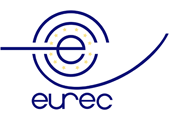menu
- Home
- National Information
- EC-Activities
- EUREC-Activities
- Legislation
- Training Materials
- Literature
- Events
- Newsletter
supported by:

Eurecnet - Training material details
Training material details
Informed consent in medical research
Author(s): Doyal, Len; Tobias, Jeffrey F. (Eds.)
Document type: Book
Year: 2001
Pages: 318
Source: Publishing house: BMJ Books (London)
Language(s): English
Classification
National background: Great BritainCategory: EU Training Material for Research Ethics
Subject areas: Human experimentation
Content: Case studies; Cultural specifics; Important codes; Legal background; Normative reflections
Issues touched: Autonomy, respect, informed consent, subjects unable to consent, role of representatives Beneficence, non-maleficence, risk for the subject Justice, benefits/burdens, research without benefit for the subject, placebos/standard therapy Protection of privacy, data protection, biological material Vulnerable groups, soldiers, prisoners, pregnant women, elder people International research, research in developing countries Social background of research, conflicts of interest, researcher vs. doctor, commercialisation Ethics committees, research protocols Publication of unethical trials
Audience: General/not specified
Classification remarks: Although the book contains articles of a highly theoretical standard, the overall make-up seems to justify its classification as training material: (1) There is a historical introduction, reprinting the Nuremberg Code, the Helsinki Declaration and various other classical texts. (2) The overall structure of the book clearly addresses researchers, especially by reproducing and discussing two recent research studies performed without obtaining informed consent.
Estimation
Theoretical quality remarks: Part 1 of the book contains the Nuremberg Code, the Helsinki Declaration and some historical introduction; part 2 reprints two research publications that were published in the British Medical Journal (BMJ) without having acquired prior informed consent and documents the subsequent discussion of this case. Part 3 summarizes informed consent regulations in UK, USA/Canada and Europe and explores the concept in special fields of research, such as research on children, in psychiatry, in surgical research etc.; Part 4 contains still more "philosophical" considerations on rights and duties in research; Part 5 contains the conclusions of the editors on the relevance of informed consent. Many authors compiled in the book have a very high reputation in research ethics. While the general composition is of a good didactic quality, the quality of the contribution varies greatly.Didactical quality: Material collection, didactically prepared
Didactical quality remarks: The later parts of the book are of a more and more sophisticated, philosophical character, thus the character of training material gets progressively lost.
Overall estimation: recommendable
Estimation remarks: The basic subject of the book is informed consent. In spite of its overall sophisticated character, a teacher may find some parts of it worth considering for presentation in a course. Especially part 2 with its two case studies and their discussion in the British Medical Journal (BMJ) may provide good material. Part 1 with its historical texts and their introductions might also be interesting.
